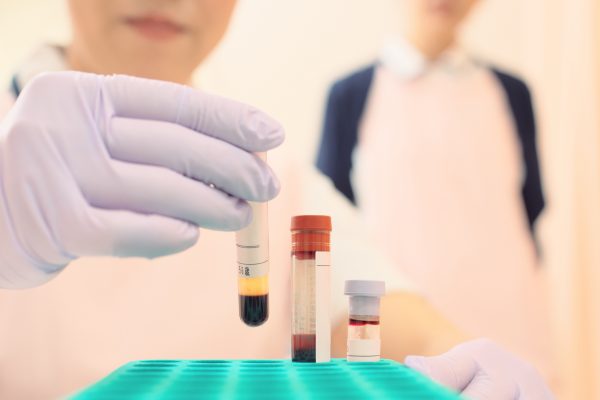
The current treatment for patients with haemophilia A involves regular infusions of clotting factor VIII (FVIII), which may require lifelong administration. A potential alternative for these patients may be a treatment with the bispecific monoclonal antibody emicizumab. Results from the HAVEN 6 study, recently published in The Lancet, show that emicizumab is efficient and safe for patients with non-severe haemophilia A without FVIII.
Haemophilia A is a bleeding disorder caused by the deficiency of clotting factor VIII (FVIII). The current treatment involves regular infusions of FVIII concentrates, which can be expensive and may require lifelong administration. Emicizumab is a bispecific monoclonal antibody that mimics the function of FVIII and has shown promising results in patients with severe haemophilia A. Based on these promising observations, the HAVEN 6 study assessed the safety and efficacy of emicizumab prophylaxis in patients with non-severe haemophilia A without factor VIII (FVIII) inhibitors.
Study Findings
The HAVEN 6 study was a multicentre, open-label, single-arm, phase 3 trial evaluating the efficacy and safety of emicizumab in patients with mild or moderate haemophilia A. The study included 72 participants who had a baseline FVIII activity of 5-40% and no history of inhibitors to FVIII. Participants received subcutaneous injections of emicizumab once weekly for 26 weeks, followed by an optional extension period of up to 80 weeks. The primary endpoint was the annualised bleeding rate (ABR) during the 24-week treatment period. Secondary endpoints included the ABR during the extension period, the proportion of participants who achieved zero bleeds, and the safety profile of emicizumab. The study found that 48 participants (67%) had no treated bleeds after the study was concluded. All-bleed annualised bleed rates were 10.1 (95%CI: 6.93-14.76) from 24 weeks pre-study and 2.3 (CI: 1.67–3.12) on-study after a median follow-up of 55.6 weeks. Therefore, emicizumab significantly reduced the ABR compared to the expected ABR based on pre-study data (p<0.0001). The safety profile of emicizumab was consistent with previous studies, with no new safety signals identified.
Conclusion
The HAVEN 6 study demonstrated the efficacy and safety of emicizumab in patients with mild or moderate haemophilia A. Emicizumab significantly reduced bleeding rates and improved the quality of life for these patients, who may benefit from a less burdensome treatment regimen compared to traditional FVIII therapy. As emicizumab expands as a therapeutic option in haemophilia, further studies are essential to confirm its long-term safety and efficacy.
References